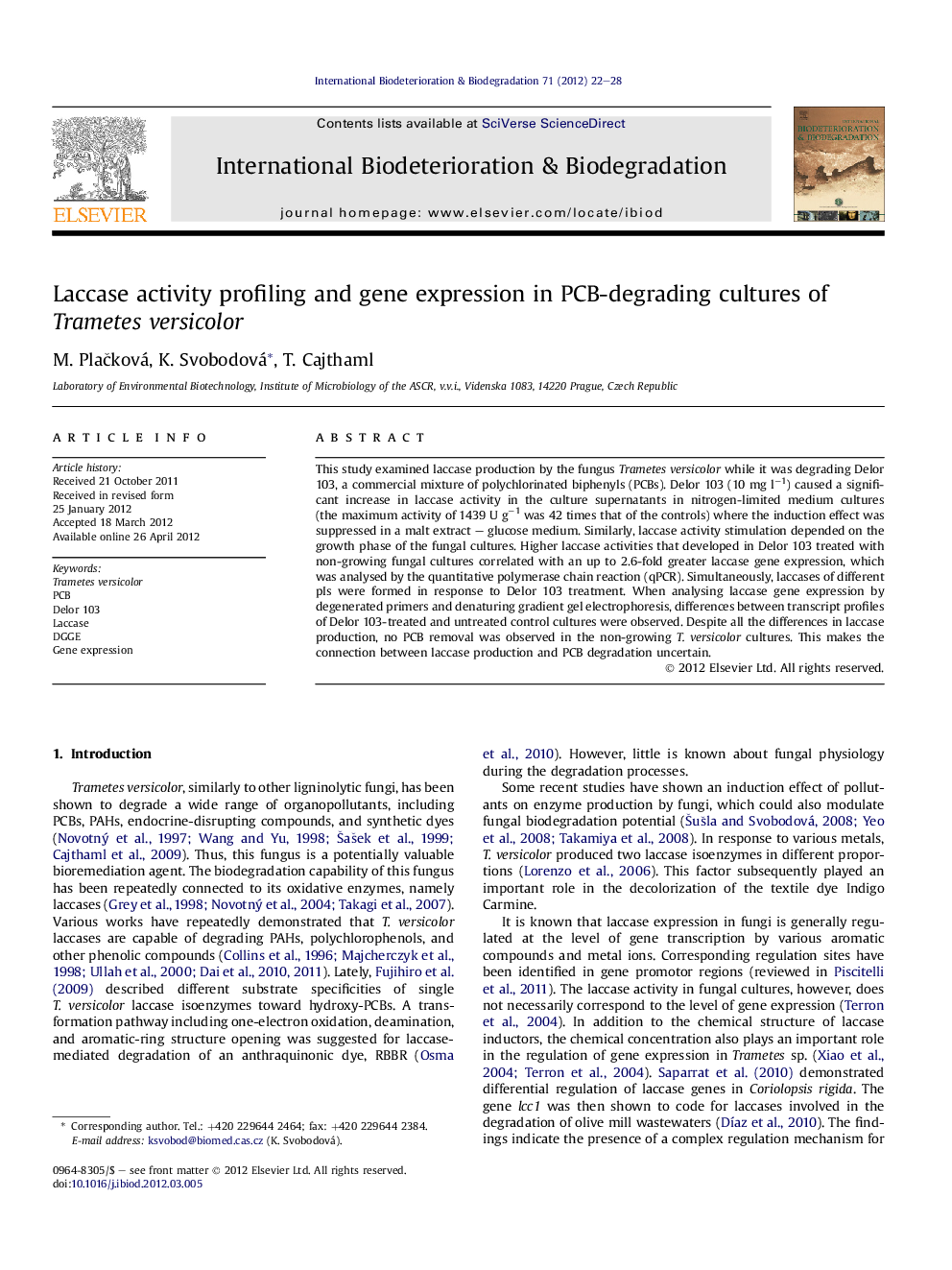| Article ID | Journal | Published Year | Pages | File Type |
|---|---|---|---|---|
| 4365114 | International Biodeterioration & Biodegradation | 2012 | 7 Pages |
This study examined laccase production by the fungus Trametes versicolor while it was degrading Delor 103, a commercial mixture of polychlorinated biphenyls (PCBs). Delor 103 (10 mg l−1) caused a significant increase in laccase activity in the culture supernatants in nitrogen-limited medium cultures (the maximum activity of 1439 U g−1 was 42 times that of the controls) where the induction effect was suppressed in a malt extract – glucose medium. Similarly, laccase activity stimulation depended on the growth phase of the fungal cultures. Higher laccase activities that developed in Delor 103 treated with non-growing fungal cultures correlated with an up to 2.6-fold greater laccase gene expression, which was analysed by the quantitative polymerase chain reaction (qPCR). Simultaneously, laccases of different pIs were formed in response to Delor 103 treatment. When analysing laccase gene expression by degenerated primers and denaturing gradient gel electrophoresis, differences between transcript profiles of Delor 103-treated and untreated control cultures were observed. Despite all the differences in laccase production, no PCB removal was observed in the non-growing T. versicolor cultures. This makes the connection between laccase production and PCB degradation uncertain.
► PCBs stimulate laccase activities in Trametesversicolor cultures. ► Laccase stimulation depended on fungal growth conditions. ► Laccase activity enhancement did not correlate with PCB degradation. ► We attempted laccase gene expression profiling using an RNA-DGGE approach. ► Enzymes with different pI values revealed different potentials to degrade PCBs.
